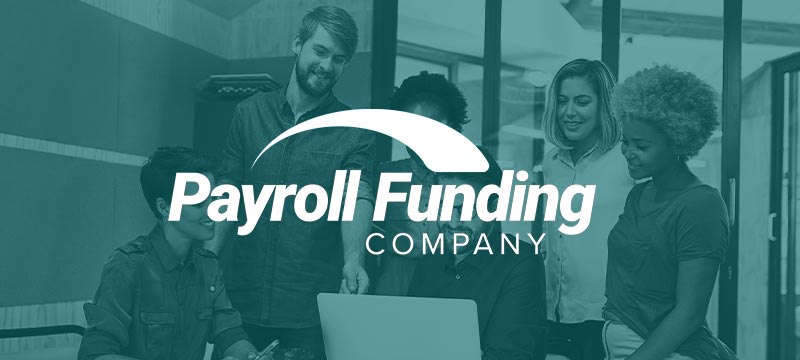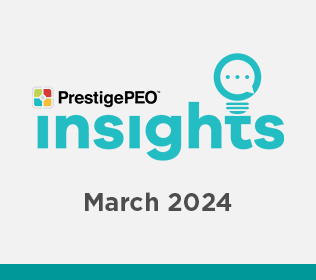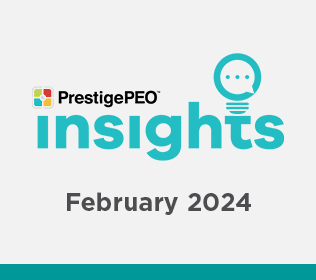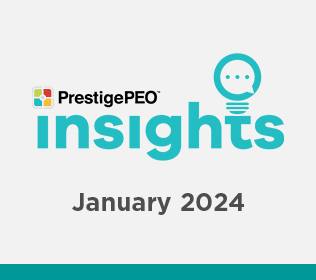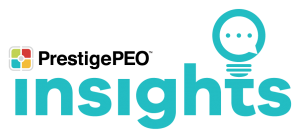
The latest news relevant to you and your business
Advantage Personnel Resources (APR) transitioned to PrestigePEO on March 1, 2024. As an APR client, you will continue to receive communication from PrestigePEO that includes helpful information for you, your business, and your employees.
You can access PrestigePRO using the homepage and the button in the upper right corner labeled “Login ”.

You can also access our convenient mobile app, PrestigeGO, showcasing your support team and other payroll information. Click here to download the app and learn more about PrestigeGO advantages.
If you have any questions, please contact your HR Business Partner.
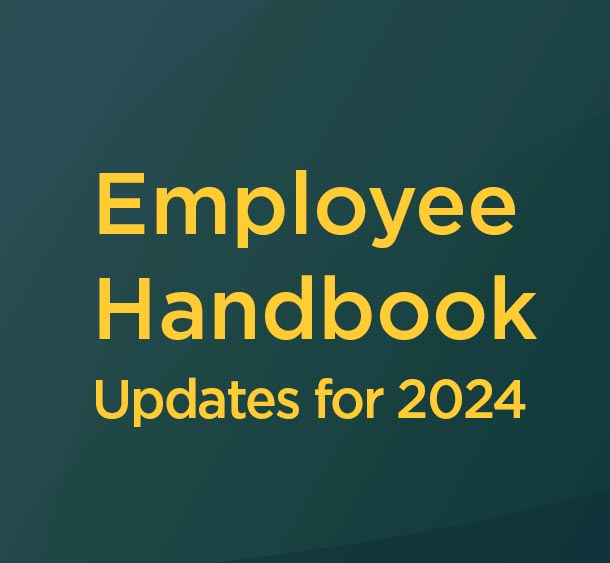

Employee Handbook Updates for 2024
It’s a good time to think about updating your employee handbook, and your HRBP can help guide you! Here are some topics that may need to be updated in your handbook this year.
- Updated policies:
- Harassment and Discrimination
- Timekeeping
- Lactation Accommodations
- Pregnancy Disability Leave of Absence and Accommodation
- Alcohol and Drug Policy
- Personnel Records
- State & local laws: There may be updates to state or local laws that affect your handbook policies. Your HRBP can support you in making these updates.
With us by your side, creating handbooks becomes manageable and stress-free!

COMPLIANCE
Important Compliance Alerts
Stay informed about regulatory changes affecting your business. Some alerts may apply only to clients with businesses or employees in particular states—each alert will specify this. Please click on the links below for further details.
Setting Workplace Expectations During an Election Year
As the 2024 election season gears up, employers need to be prepared to manage the natural overflow of related challenges as well as employer rights and responsibilities. While employers have certain rights when it comes to employee dress code, speech, solicitation rules, and other potentially election-related activities, it is important to consider all related state and local rules in the practical application of these rights. This article attempts to address some generally anticipated election year challenges, but as always, please consult with your HRBP for specific guidance.
When it comes to elections, many employees may rely on the First Amendment’s “Freedom of Speech” guarantee to protect any expression of support for a political party or specific candidate. However, the Constitutional freedoms contained in the Bill of Rights are typically aimed at restricting state action by government entities rather than private employers’ efforts to manage their workforce.
So, while this provision generally does not apply to private employers’ ability to discipline their employees for engaging in prohibited conduct, employers need to be aware that under the National Labor Relations Act (NLRA), both union and non-union employees maintain a right to engage in concerted activity, for the purposes of collective bargaining or other mutual protection or aid regarding terms and conditions of employment. Employers should use caution when creating rules that prohibit election-related speech in the workplace. Section 7 of the NLRA states that “concerted activity includes statements made for the purpose of initiating, inducing, or preparing employees for group action.” These discussions may include topics such as higher wages, changes to work schedules, job security, or other terms and conditions of employment that would be protected. Political activity that is unrelated to employment concerns would likely not be protected.
Furthermore, while federal antidiscrimination laws do not specifically protect employees’ potential political activity or speech, it is important to note that an employee’s activity or speech may trigger these antidiscrimination laws, especially if the activity or discussion involves race, color, sex, sexual orientation, gender identity, national origin, religion, age, or disability. Employees could always claim that an employer’s decision to discipline or terminate an employee for expressing a political view at work, particularly one that may trigger anti-discrimination laws, is a pretext for illegal discrimination.
Finally, there are also state specific laws at play in this analysis as some states broadly prohibit adverse employment action against employees based on political expression. Employers in these select states should use extreme caution before taking action against an employee who has expressed their political views in the workplace.
When it comes to dress code, employers want to create a policy that ensures consistency in dress code or appearance and enforce these rules uniformly across all departments and employees. It is permissible for employers to prohibit employees from wearing apparel and accessories with political statements unrelated to the workplace, with the understanding that to avoid any claims of bias or discrimination, employer enforcement will be key. A recent February 2024 National Labor Relations Board (NLRB) ruling has drawn this analysis into the spotlight once again, ruling that certain political messages could be considered related to the workplace and protected concerted activity. The NLRB has emphasized that political and social messaging can be protected conduct when there is a nexus between the messaging and employees’ terms and conditions of employment.
As with dress codes, generally prohibiting employees from engaging in political activities such as campaigning or distributing political resources in the worksite during work hours is permissible with few exceptions and enforcement will be the vital to avoiding claims of discrimination or violations of the law. Consistent enforcement of these non-solicitation-related rules will apply to all types of solicitation efforts involving everything from posting notice of Girl Scout cookie sales in the workplace to pinning up a political rally sign-up sheet. Employers need to be extremely cautious and avoid prohibiting political solicitations during breaks and meals, even paid breaks, and be sure to distinguish between potentially union related activities and speech from political speech.
As the election cycle heats up, it is important for employers to keep these considerations in mind as well as prepare for the potential uptick in political engagement in the workplace.
PrestigePEO is here to help.
PrestigePEO is focused on supporting your business. If you have any questions or need assistance updating your existing policies, please consult your HR Business Partner for specific guidance.
Navigating Remote Work Pitfalls
Flexible work is here to stay. Proactively maintaining and periodically updating policies is essential to realizing the benefits and avoiding the pitfalls of the changing workplace. One of the risks of a fully remote work environment is hiring an individual who turns out to be someone other than they claimed. Increasingly, companies that have hired candidates remotely have reported subsequently discovering that the person whom they interviewed was not the new hire now working for their company. Upon investigation, employers usually discover that the individual is not the new hire but an imposter, who sometimes turns out to be a friend or relative of the new hire. According to the FBI, more companies have also been reporting people applying to jobs using video, images, or recordings that are manipulated to look and sound like somebody else. These attempts are known as deepfakes. The fakers are also using personally identifiable information from other people—stolen identities—to apply to fully remote jobs. The FBI’s report noted that many of these open positions had access to sensitive customer or employee data, as well as financial and proprietary company information, implying the fakers could have a desire to steal sensitive and confidential information.
In another recent incident that illustrates what can happen when a real remote worker falls prey to a bad actor close to home, the SEC announced criminal insider trading charges for a Houston-based man who listened in on several remote calls made by his wife, a BP merger and acquisitions manager, who had been working on a planned merger deal in a home office 20 feet away. The man subsequently went on a buying spree, purchasing more than 46,000 shares of the takeover target company weeks before the deal was announced without his wife’s knowledge.
So, what is an employer to do to avoid scenarios like these? Some best practices to guard against imposters include:
- Requiring cameras to be on for all interviews and a “camera on” policy for all company meetings.
- Requiring new hires who are fully remote to sign a policy acknowledgement that states they are the same person who interviewed and will not sub-contract any work to another individual and agree to have camera on during calls/meetings. This acknowledgement can also state that the company will report violations to the authorities as applicable including the IRS, DOL, USCIS, SSA, or other government agencies.
- Revising policies and employment contracts to state that failure to turn on a camera when requested is a for-cause, terminable offense. This should be listed on the employment contract, if applicable, and require an acknowledgment.
- Training recruiters that if someone is hesitant to turn their camera on, they don’t move forward with the candidate.
While deepfake technology is currently in its infancy, it is evolving rapidly, and education about deepfakes is critical to minimizing the risks they present to employers. There are ways for humans to detect fake videos, especially once they are trained to watch for certain visual glitches, such as shadows that do not behave as they should or skin texture that does not seem accurate. Eye movements that do not look natural or a lack of eye movement, such as an absence of blinking, are red flags. Poor lip-syncing, robotic-sounding voices, and digital background noise are other things to look for when trying to spot a deepfake. Employers should also consider meeting remote candidates in person during the hiring process. Another consideration (although currently not widely available) are deepfake detectors which can authenticate and verify if the subject in the video is who they claim to be.
Best practices to protect confidential information include:
- Using appropriate contractual protections such as confidentiality agreements and confidentiality policies with employees and reminding them of their duties to preserve confidentiality.
- Limiting disclosure to those who need to know.
- Employers should keep the disclosure of confidential information and trade secrets limited to a discrete group of individuals who need the information to perform their jobs or for other legitimate business functions.
- Reminding employees at meetings or events where confidential information will be disclosed that the information is confidential and that they have a duty to maintain confidentiality.
- Establishing appropriate security measures.
- Modifying company policies to require remote workers with access to confidential information to ensure that while attending remote meetings, they are in a space that is free from third-party observation or intrusion.
- Setting up sufficient firewalls, encryption, anti-hacker initiatives, anti-virus software, multi-factor authentication tools, and other technical protections.
- Imposing strict limits on and rules about sharing confidential documents with clients, vendors, or other third parties.
- Training employees on the importance of confidentiality and defining the universe of information that must be protected. As part of that training, employees are required to sign documents acknowledging receipt and understanding of confidentiality policies and training (in addition to any confidentiality agreement) and strictly enforcing confidentiality policies and restrictive covenants with remote employees.
- Implementing appropriate exit procedures.Adopting a departing employee procedure aimed at minimizing the risk of misappropriation can help employers protect their confidential information. Employers can:
- Provide departing employees with copies of any confidentiality agreement they signed during their employment and the company’s policy on confidential information.
- Remind departing employees of their continuing obligations to keep information confidential and ask departing employees to sign an acknowledgement that they understand their continuing obligations.
- Review the departing employee’s computer activity, hard drives, email, voicemail, and other communication records for the period before the employee’s termination if there is a high risk of misappropriation.
PrestigePEO is here to help. Please consult your HR Business Partner for specific guidance.
California Privacy Protection Agency (CCPA) Update
On February 9, 2024, the California State Court of Appeals has ruled in favor of the Consumer California Privacy Protection Agency (CCPA), vacating the lower court’s earlier the decision to postpone enforcing the new CCPA regulations until March 29, 2024. The Appellate court determined that the California Privacy Protection Agency and the Attorney General did not have to wait until next month to enforce the regulations and could start enforcing the CCPA regulations immediately. The decision is currently being appealed to the Supreme Court of California. We will continue to monitor the Court’s ruling and will keep you informed about any changes that will take place going forward.
As a result of this new decision, employers should review their date processing agreements, requirements for opt-out signals/opt-out mechanisms, dark patterns, data processing and handling consumer data requests. Additionally, employers should update their notices for employees and job applicants and review contracts they have in place with vendors and third parties to make sure the data requirements are aligned with the new CCPA regulations that can be found here.
PrestigePEO is here to help.
If you have any questions concerning your compliance with the CCPA or the CCPA Addendum, please get in touch with your HR Business Partner.
California Pay Data Reporting
As a reminder, California employers are entering the second year of the expanded California Pay Data Reporting requirements. This annual Pay Data Report is due by May 8, 2024. Employers are encouraged to start planning now for this deadline to ensure compliance with the increasingly complex requirements.
This reporting requirement applies to all private employers who “regularly employ” 100 or more employees and at least one (1) employee in California and/or employers who hired 100 or more workers through labor contractors and at least one (1) in California. Employers will be required to submit Employers Reports and Labor Contractor Reports if they fall under both criteria, and for employers with multiple establishments, a report must be submitted for each establishment. For employers with multiple legal entities and multiple establishments, the report must be submitted by the legal entity for each establishment.
The California Pay Data reporting requirements are very fact-specific. Employers are encouraged to work with their various stakeholders soon to ensure that the necessary time is considered when planning for this May 8, 2024, deadline.
PrestigePEO is here to help.
PrestigePEO is focused on supporting your business. If you have any questions regarding the California Pay Data Reporting requirements, please reach out to your HR Business Partner.
California Workplace Violence Prevention Act
California, once again, is in the forefront of contemporary policymaking; this time requiring almost all California employers to develop and implement a written workplace violence prevention plan that includes a first round of employee training no later than July 1, 2024. California is the first state to require such measures, doing so in direct response to the growing need to proactively determine workplace violence hazards and work to prevent violence in the workplace.
Specifically, this legislation requires that employers develop a written workplace violence prevention plan, provide annual training to employees regarding the plan, and maintain a log of incidents of workplace violence. Three important components to the plan include: 1) coordinating compliance measures with other employers; 2) determining which employees should be involved in plan development and receive training; and 3) addressing certain required plan elements, like assessing workplace violence hazards.
In coordinating compliance with other employers, the legislation requires that employers that operate in a multiple-employer setting, such as leased space in an office building, work together with the site owner and other employers in the building to jointly determine which employees will be involved in the various aspects of the plan including development, training, investigation, and monitoring of the incident log.
The regulation requires that employers offer all covered employees the opportunity to be involved in the development and implementation of the plan and to train these employees on the specifics of the plan. It is important to note that the law does exempt remote employees, but it is suggested that including these employees in the plan development and training would be considered a best practice, as these employees would bring a different perspective to overall considerations.
Finally, addressing plan elements includes determining procedures for 1) identifying and evaluating workplace violence hazards; 2) responding to an actual or potential workplace violence emergency; and 3) ensuring employee compliance with the plan.
Employers are urged to begin preparing for this plan now, as the plan has a number of different elements that must be satisfied by July 1, 2024.
PrestigePEO is here to help.
PrestigePEO is focused on supporting your business. If you have any questions regarding the California Workplace Violence Prevention Law requirements or updating your existing policies, please reach out to your HR Business Partner.
Florida 2024 Legislative Session
The Florida 2024 Legislative Session comes to a close with a number of employment-related bills still under consideration.
As the Florida 2024 regular legislative session draws to a close in early March, employers need to remain vigilant to a number of proposed pieces of legislation that, if passed, will have potential impacts across many industries. Proposed Child Labor bills would drastically modify the number of hours, hours during the day, and number of consecutive days that children fourteen through seventeen years old may legally work. The legislature is also considering legislation that would require the Florida Department of Commerce to adopt statewide workplace heat-exposure requirements, provided the federal agency, OSHA, has not adopted a specific related standard by July 1, 2028. These requirements would preempt local ordinances related to heat exposure. Finally, proposed bills that would create new causes of action against Florida employers related to the definition of biological “sex” for the purposes of the Florida Civil Rights Act of 1992 and Gender Identity Employment Practices are under consideration.
PrestigePEO is here to help.
PrestigePEO will continue to monitor legislative developments as the session comes to a close and provide updates as they become available. If you have any questions, please reach out to your HR Business Partner.

Webinar Recording: Essential Insights on Regulatory Compliance in the Midwest
Staying abreast of compliance, laws, and regulations is crucial for business owners, and keeping up with the ever-changing landscape of U.S. compliance can be tough. Our Compliance team has led a series of webinars on localized compliance regulations to be aware of. The most recent session covered compliance in the Midwest. If you missed this webinar, you can watch the webinar recording at the link below.
PRODUCT CORNER
Urgent Business Funding
Whether you need short-term cash to fund payroll temporarily, or you need quick funding for projects like office expansion or purchasing equipment, PrestigePEO’s latest partnership with Payroll Funding Company presents these opportunities. Payroll Funding Company can fund up to $200,000 fast to eligible clients without collateral or stellar credit scores. When you need an influx of cash for an immediate project, Payroll Funding Company is the right choice.
Financial Literacy with FinFit
March is National Credit Education Month! Support your employees with a financial tool that will educate them on financial health best practices. With your FinFit Financial Wellness benefit, you can access educational tools and resources to help you live a more financially secure life. FinFit is not dependent on the enrollment of any other benefits. Clients and their employees can enroll at any time during their tenure and can disenroll at their will as well. Learn more about FinFit below!


Earn Up to $2,500 for Every New Client Referral
The best marketing is done when one happy client tells another about their experience. PrestigePEO is happy to reward our clients who spread the word about our services. Whenever you refer a fellow business owner, we will repay your kindness! We’ve made it very easy to make your referral, and we’ve given out thousands of dollars in referral payments to our gracious clients to date. It’s time to cash in – make a referral today!
Feedback
If you have an idea for a future newsletter, we’d love to hear from you! Additionally, if you’d like more information on our services or programs, we can certainly accommodate that as well. Email marketingteam@prestigepeo.com today!
